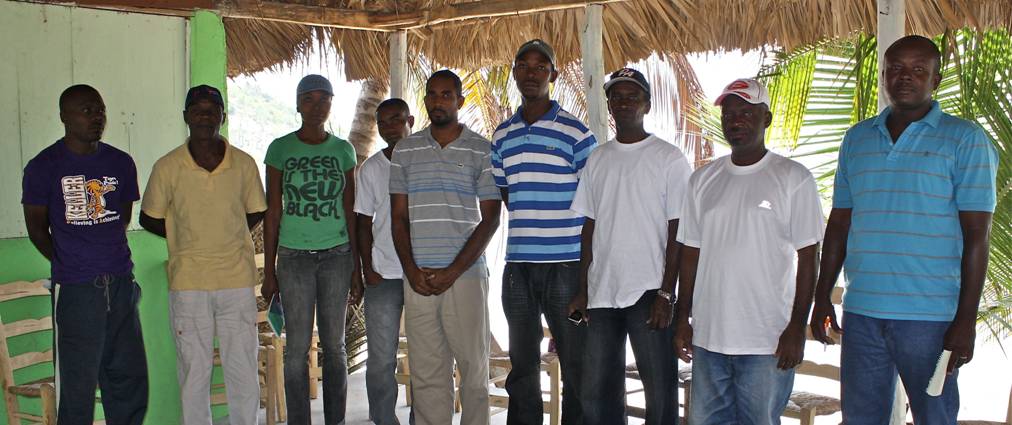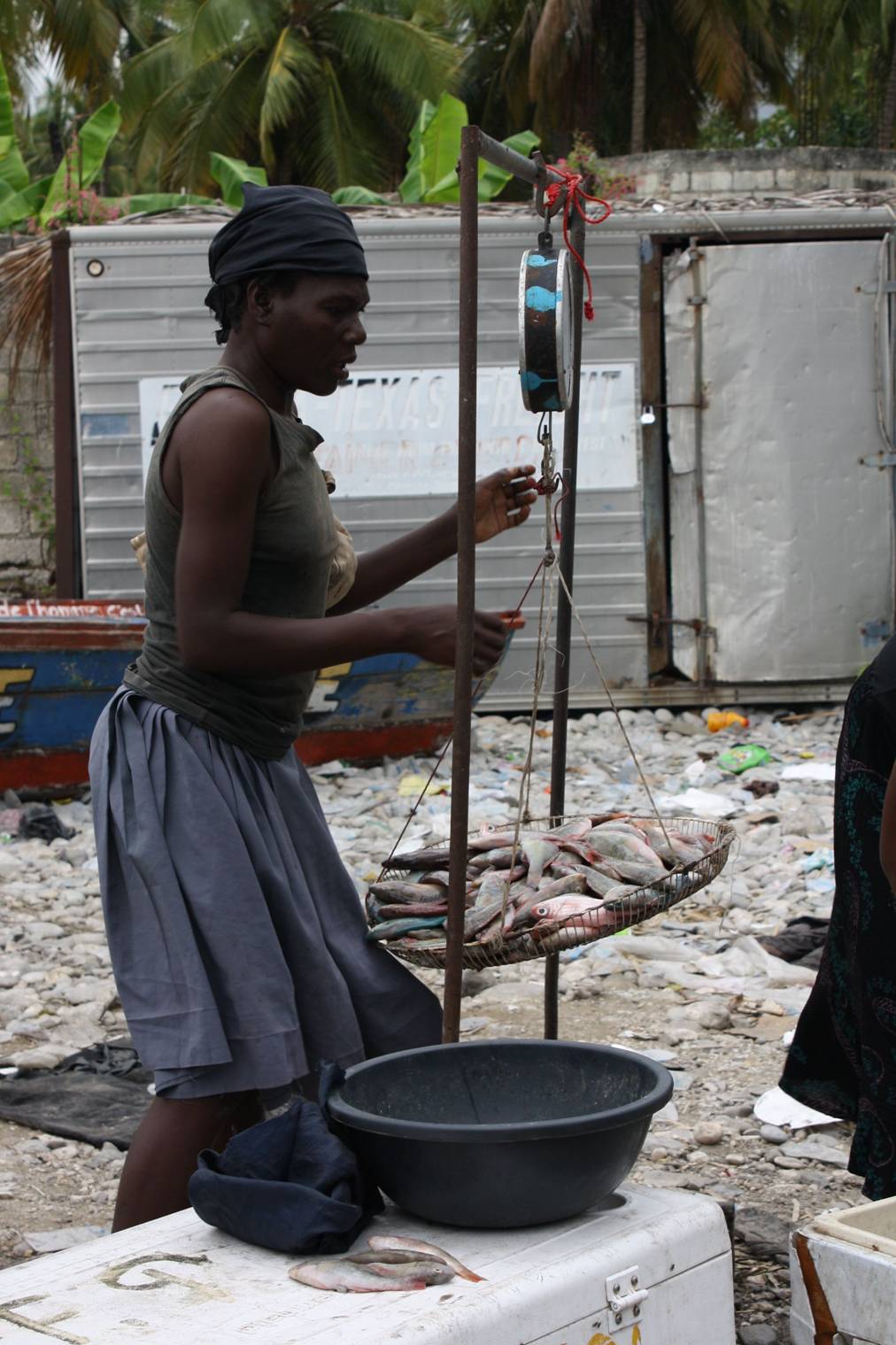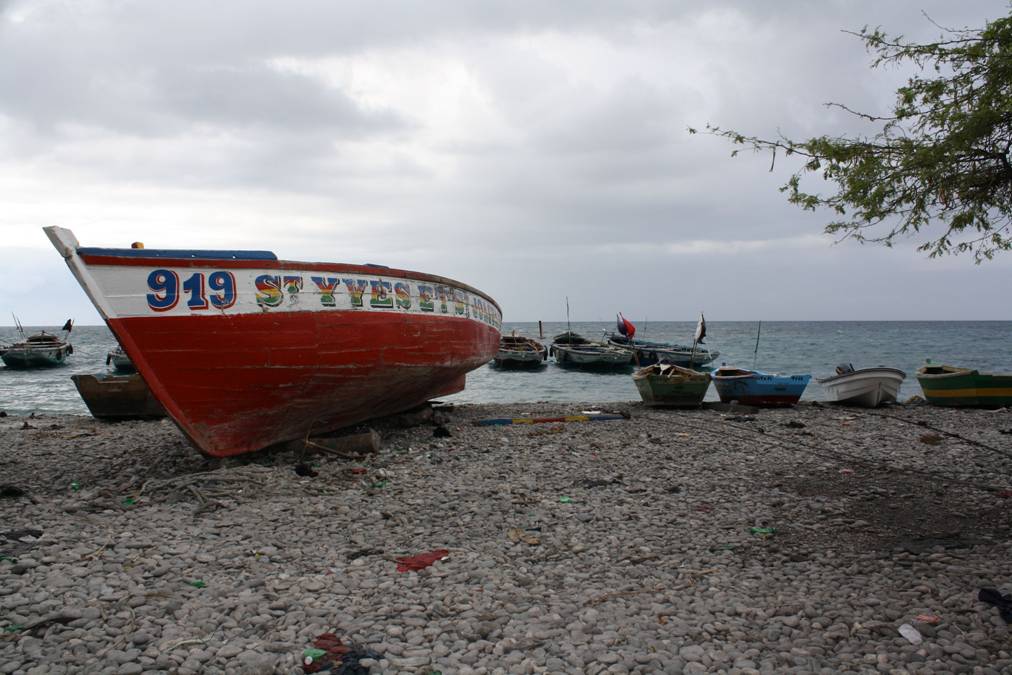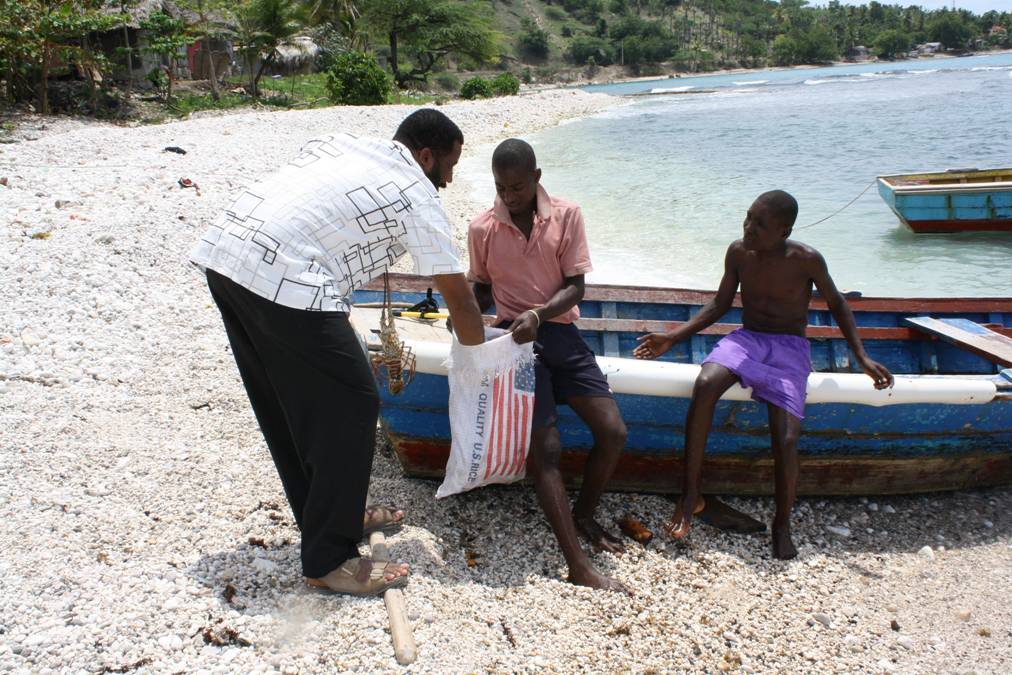In this installment of the “Food Voices” series- we hear from several local fisherman about the challenges they face in Haiti.
WhyHunger is pleased to be partnering with Andrianna Natsoulas, longtime food sovereignty activist and author of the forthcoming book Food Voices: Stories of the Food Sovereignty Movement. In 2010, Andrianna began a journey across the Americas to capture the stories of people working towards and living a just and sustainable food system. As she continues her journey, spanning from Nova Scotia to Ecuador to Brazil and beyond, we will feature highlights of the stories she gathers.
In Haiti, the fishermen face a critical situation. They do not have refrigeration, so they are forced to accept any price they are offered for their fish. They do not have basic materials, such as nets and boats to catch the fish. Cayes Jacmal in the Southwest of Haiti was devastated by the 2010 earthquake and then the ensuing tsunami destroyed boats and nets. Regardless, the fishermen are resolved to work together to improve their lives and they are looking to partner with outside organizations. Representative from several fishing organizations came together in Cayes Jamal to discuss some of the issues facing the fishermen.
Pierre Hughes Thibeau: “Most of the associations do not have a local place and so we just meet under a tree or at somebody’s house. We have no physical location to meet and that is a problem. We often get together and discuss our problems.”

Guerda Jérôme: “Fishing is our life. One of the issues is that we do not have a way to sell what we catch. When we catch something, if there are people right there who want the fish immediately, they buy them. Sometimes people from Port au Prince come and buy the fish. Hotels and restaurants buy small amounts just for what they need that day – 5 or 10 pounds, which is nothing. We have no ice and no refrigeration. We have no way to preserve the catch, which means the fish spoils. We would like to find a freezing place. We need to dry the fish. That is the only way we can preserve the fish. It would then be easier to go fishing.”

Ronald Jérôme: “The people in the fishing trade are still fishing the way our grandparents fished. We have not been able to improve our fishing methods or find a different or easier way to fish and to preserve the fish. The biggest problem we have is the lack of organization. We need to learn more and we need to learn the little things that will improve our lives. We must teach each other what we know and share knowledge, but at the moment we do not have that organizational capacity.”
Mathieu Louis: “I am from the Association of Fishermen of Cayes Jamel. Since I was a small child, fishing has been my only business. One time I went to the Dominican Republic to see how the fishermen in Santo Domingo are living. They have everything. They have a freezing place, and whatever you need as a fisherman to live well. When I came back to Haiti and I was still fishing the old ways, I wanted to kill myself. That is why we made an Association of all the fishermen of Cayes Jacmel. If the Association is the way we can find help, good for us.”

Zény Anacassice: “We have to get together and improve our way of fishing. That is why we need associations. But, there is a lack of possibilities to make these improvements because we need fishing materials. There was a Spanish organization, which along with the [Haitian] Ministry of Agriculture, wanted to help us with our fishing methods. But, the way they wanted to fish is opposite to what we are doing. They wanted to help us, but to have us fish the way they wanted us to fish. All we wanted was to have some materials.”

Vitho Jouissance: “We have a lot of needs. We need fiberglass boats, motors and refrigeration. We row our boats to go fishing. We used to catch small fish, but they are no longer there, so the big fish have nothing to eat, and they stay farther out. We have to row to catch the big fish, but we have no motors to catch them and that is why we are suffering. We have to stay by the coast because we get tired trying to row far out. We have problems with the small fish because we cannot sell them. The sellers give us credit. We go fishing, come in, give the catch to the sellers and then get paid after they are sold. We cannot survive with what we make at the moment.”

